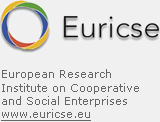After two decades of academic debate on the social capital-growth nexus, discussion still remains open. Most of the literature so far, however, has followed the one-size-fits-all approach, neglecting that the great disparities across geographical units might have implications in this relationship. This article analyzes the role of two social capital indicators on the growth of 237 European regions in the period 1995–2007 by implementing a set of both parametric and nonparametric regressions. Whereas the former impose a linear functional form for the parameters, the latter relax this assumption providing a flexible frame in which the functional form is given by the data. The technique also permits introducing parameter heterogeneity in the analysis by estimating individual regional effects. The results from the parametric analysis show that the sign and the magnitude of the effects hinge upon the indicator considered. In contrast, results from the nonparametric regressions suggest that, while both indicators are significant growth predictors, the effect departs from linearity. Moreover, not all regions benefit from social capital with the same intensity. The most notable difference lies in regions from Central and Eastern Europe countries, where social capital is mostly negative. Other regional conditions such as initial income levels, investment rates or the stock of human capital show a more limited influence.
Keywords: Economic growth; European regions; nonparametric regression; social capital
JEL classification: C14; R11; Z13
Peiró Palomino, J. (2014). Social capital and economic growth in Europe: nonlinear trends and heterogeneous regional effects.








